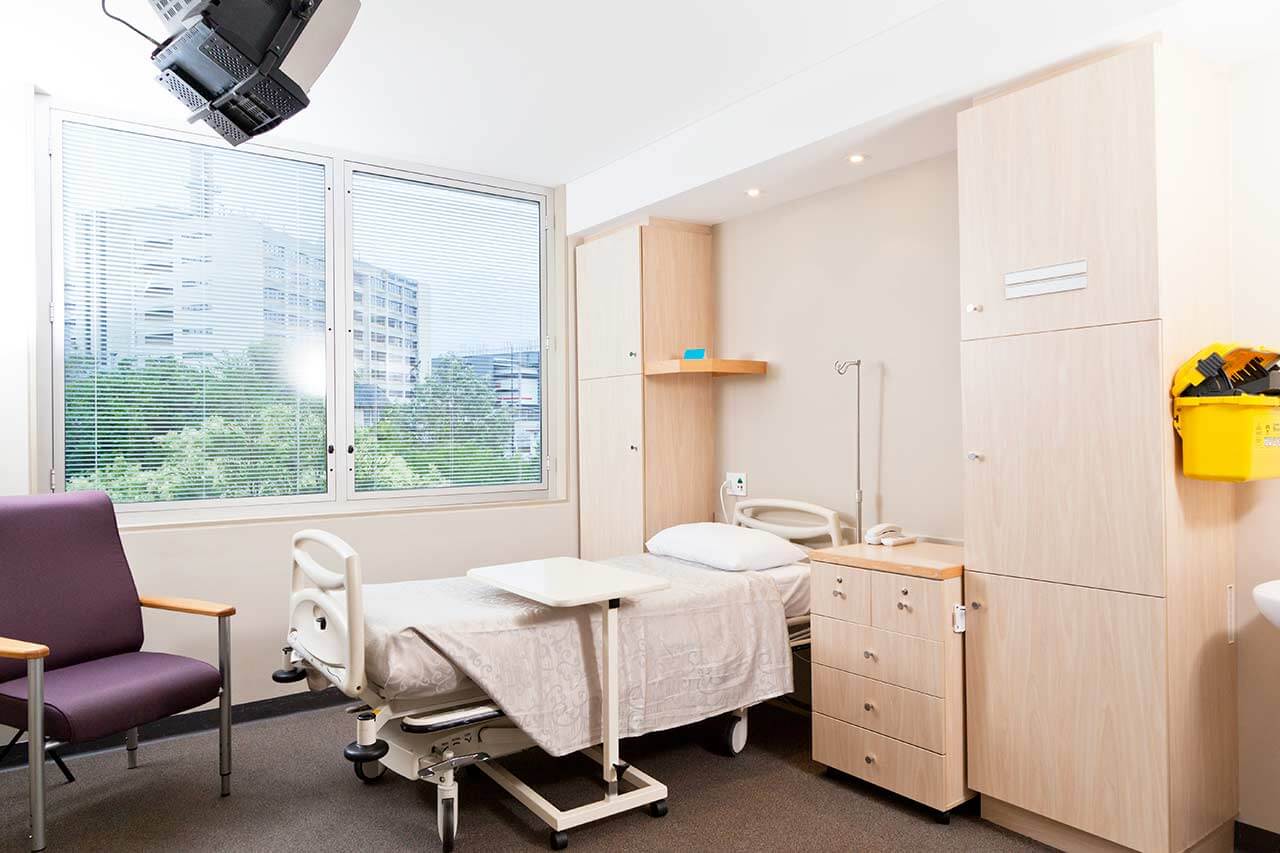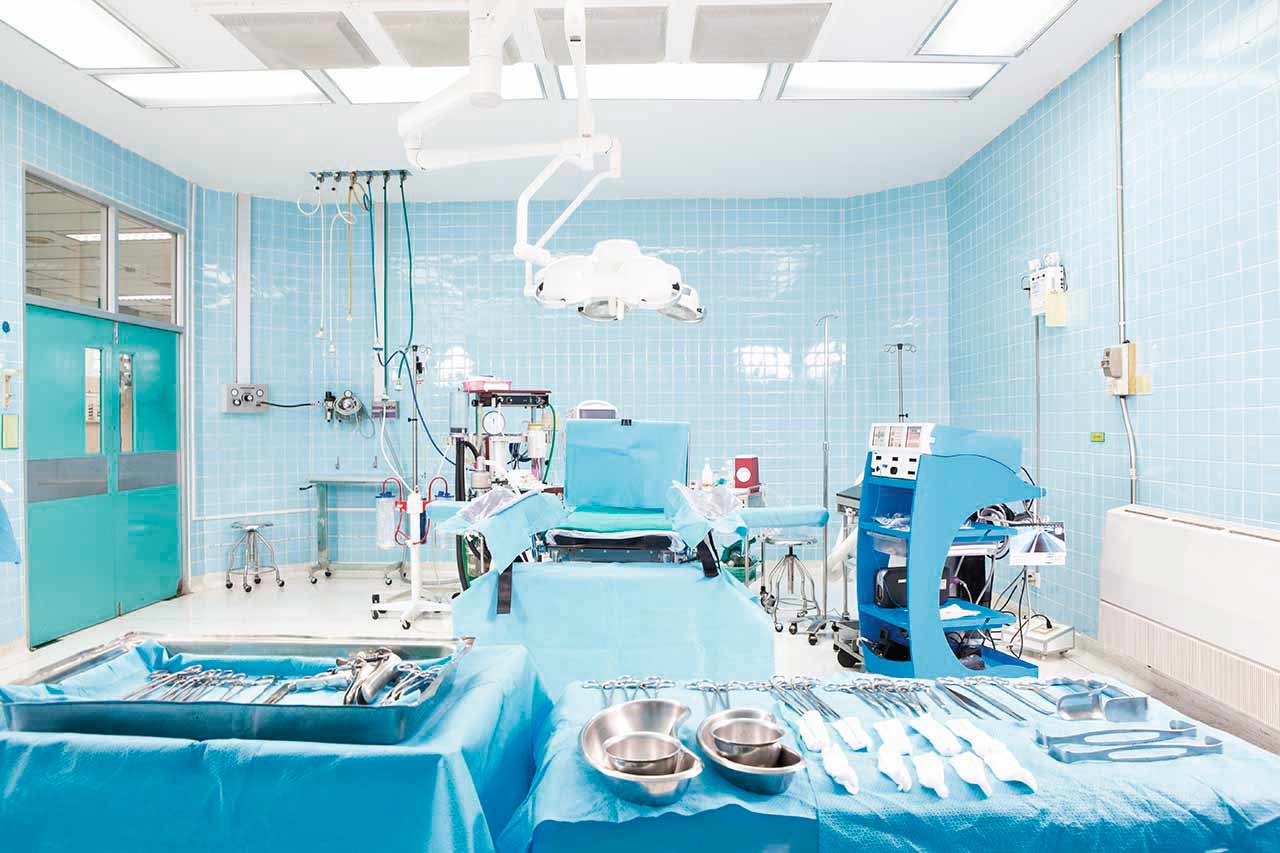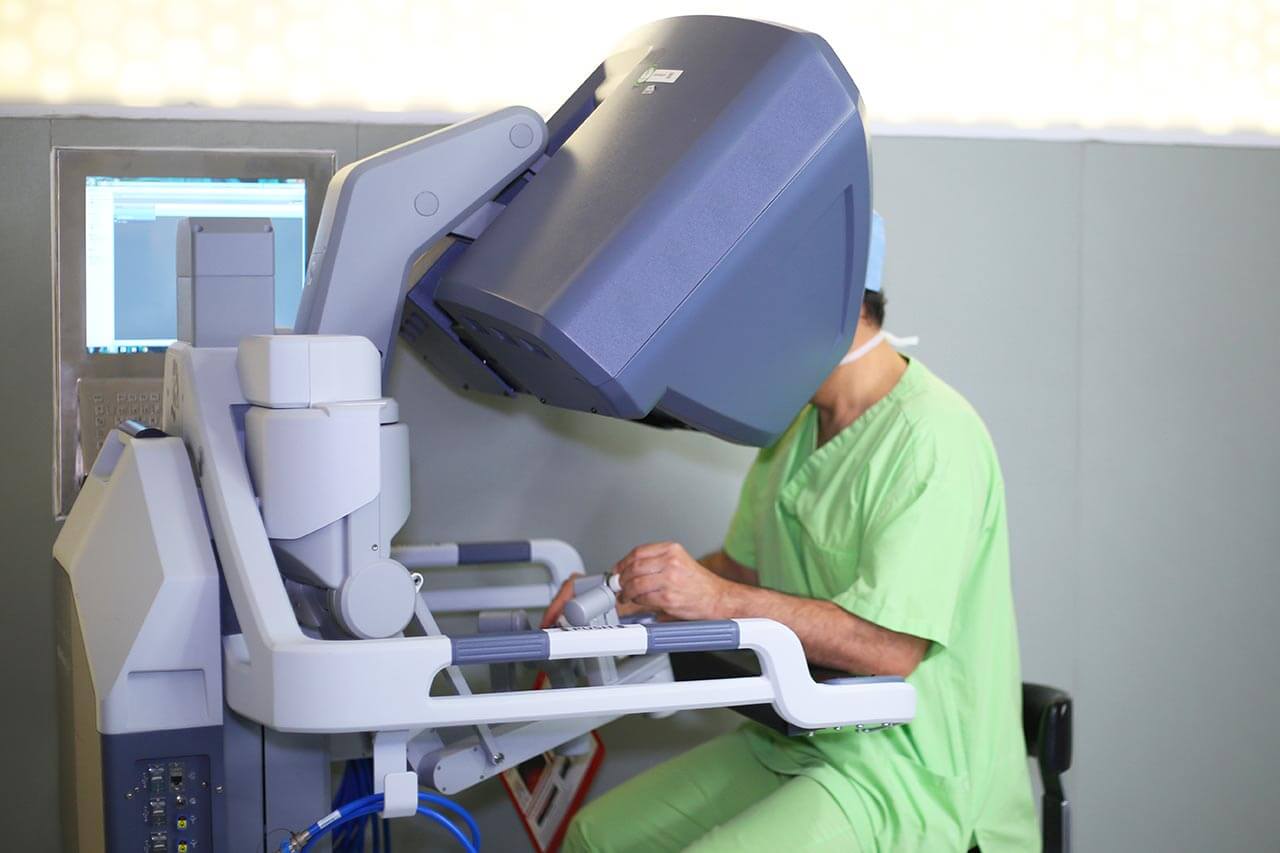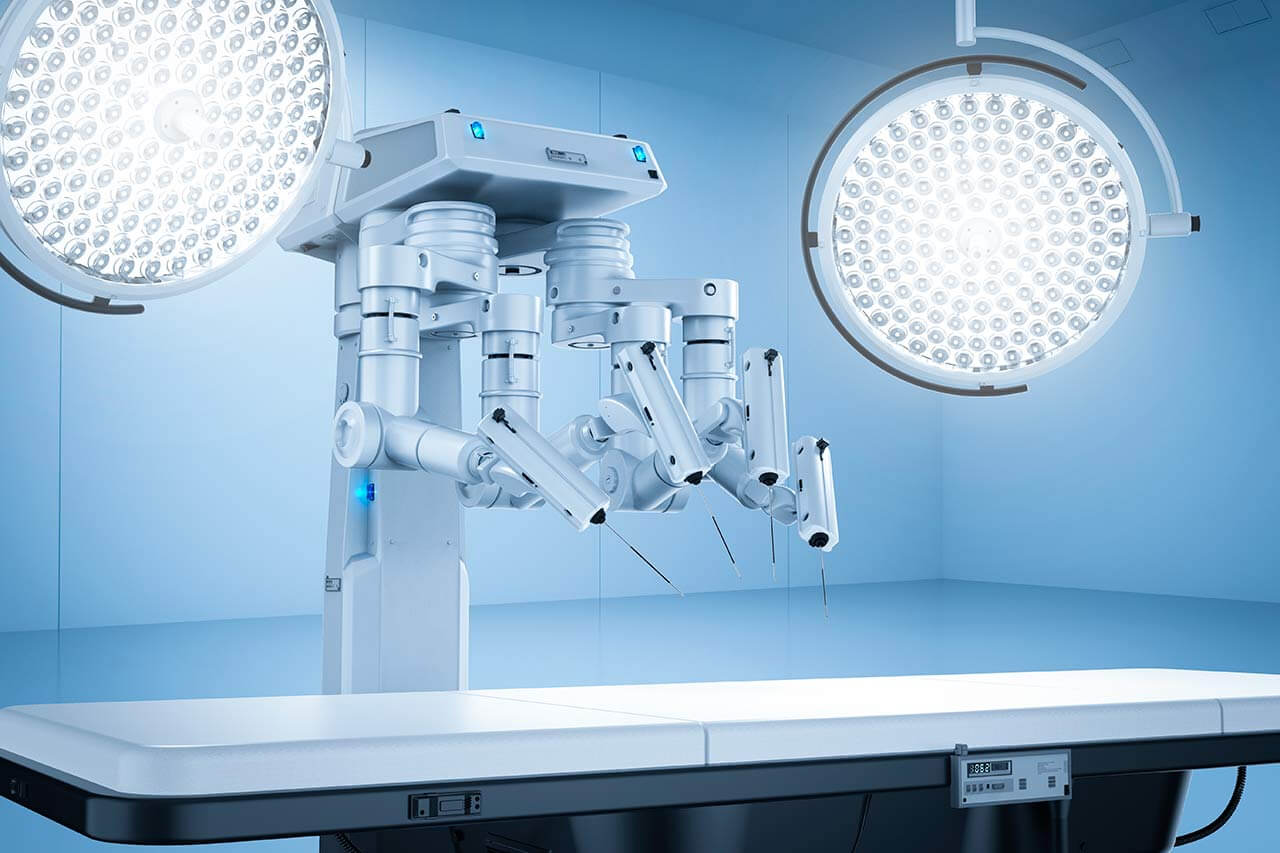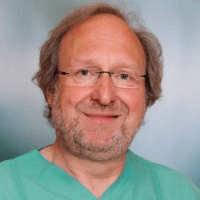
The program includes:
- Initial presentation in the clinic
- clinical history taking
- review of medical records
- physical examination
- laboratory tests:
- complete blood count
- general urine analysis
- biochemical analysis of blood
- inflammation indicators (CRP, ESR)
- indicators blood coagulation
- neurological examination
- functionality x-ray
- CT/MRI scan
- neuropsychological tests (on indications):
- ENMG (electroneuromyography)
- SEPs (somatosensory evoked potentials)
- preoperative care
- empyema resection under neuronavigation
- blood transfusions (if needed)
- postoperative control
- symptomatic treatment
- control examinations
- the cost of essential medicines and materials
- nursing services
- full hospital accommodation
- developing of further guidance
Required documents
- Medical records
- X-ray examination, MRI/CT scan (if available)
Service
You may also book:
 BookingHealth Price from:
BookingHealth Price from:
About the department
The Department of Neurosurgery and Spinal Surgery at the Asklepios Municipal Hospital Bad Wildungen provides the highly effective treatment of somatic diseases of the nervous system, as well as the full range of degenerative diseases and traumatic injuries of the cervical, thoracic and lumbar spine. Of particular interest to doctors of the medical facility is the treatment of benign and malignant tumors of the brain and spinal cord, their meninges, peripheral nerves and metastases. The department's therapeutic options include both conservative and modern surgical treatment methods, including endoscopic and minimally invasive interventions. The main task of the department's neurosurgeons is to provide each patient with an individual and the most effective treatment, which will eliminate pain and stiffness of movements. The Chief Physician of the department is Dr. med. Frank Maier.
The most important focus of the department's clinical practice is the treatment of spinal degenerative diseases and spinal injuries. The department successfully treats cervical and lumbar disc herniation, spondylolisthesis, vertebral fractures and chronic back pain. When timely admitted to the hospital, the doctors can effectively treat herniated discs without a surgical intervention. In such cases, they use physiotherapy methods (massage, heat therapy, cold therapy, etc.) and a well-selected course of exercise therapy. If the hernia is at the progressive stage and accompanied by severe pain and paralysis, the patient will have to undergo surgery. The surgical intervention is preceded by comprehensive diagnostics. During the individual consultations, the attending physician tells the patient in detail about the prognosis of the disease, the risks of the intervention and his chances of a successful outcome of the operation. With diagnosed spondylolisthesis (vertebral displacement), the patient is offered surgical treatment – spondylosyndesis. The goal of the operation is to immobilize the vertebrae affected by spondylolisthesis in order to prevent damage to the spinal cord and further destruction of the vertebral segments.
The department's neurosurgeons also focus on patients with brain and spinal cord tumors, including metastases. The treatment of such complex diseases requires a special approach, and therefore the specialists from related medical fields are involved in the therapeutic process. At the stage of diagnostics, the patient must undergo a comprehensive clinical examination, magnetic resonance imaging (with and without contrast enhancement) and radiography. The results of diagnostic tests allow the doctors to accurately determine the type of tumor, its location and the patient's suitability for surgery. The surgical treatment is always complemented by chemotherapy and/or radiation therapy, since the primary task of doctors is to completely destroy cancer cells. It is almost impossible to achieve this purpose via monotherapy.
The department's range of medical services includes:
- Surgical treatment of spinal diseases and injuries
- Surgery for cervical and lumbar disc herniation
- Surgery for spondylolisthesis (spondylodesis)
- Surgery for vertebral fractures
- Surgery for spinal fractures and other injuries
- Surgical treatment of benign and malignant tumors of the brain and spinal cord, their meninges, peripheral nerves, as well as brain and spinal cord metastases
- Surgical treatment of peripheral nerve compression syndromes
- Carpal tunnel syndrome
- Tarsal tunnel syndrome
- Ulnar nerve entrapment
- Sacroiliac joint block for hip pain
- Surgical treatment of other diseases of the central and peripheral nervous system
Photo of the doctor: (c) Asklepios Kliniken GmbH
About hospital
The Asklepios Municipal Hospital Bad Wildungen positions itself as a modern medical facility, which is focused on the provision of high-quality medical services using state-of-the-art medical technologies and advanced treatment methods. The hospital pays great attention to an individual approach to each patient, which is the basis for a successful treatment result. The medical complex enjoys the status of an academic hospital of the Philipps University of Marburg, thanks to which it has access to innovative medical developments, trains medical students and conducts advanced training for doctors. In addition, the medical facility is part of the Asklepios Kliniken GmbH – one of the three largest and most famous private medical networks in Germany.
The hospital has 10 specialized departments, as well as two interdisciplinary centers and an emergency medical service. The medical team of the hospital, which consists of more than 420 specialists, successfully treats simple common and especially complex diseases of the cardiovascular system, respiratory tract, musculoskeletal system, nervous system, spine, urinary system, etc. The Department of Radiology and the in-house laboratories serve for various diagnostic tests, which allow the doctors to establish an accurate diagnosis and develop the most effective treatment regimen, taking into account the particular clinical case of the patient. The hospital has 195 beds for patient hospitalization, and also provides medical care on an outpatient basis.
The special focus of the clinical activities of the medical facility is surgical treatment. The surgeons from various medical fields with brilliant success perform surgery to treat various diseases of the gastrointestinal tract, blood vessels, neurosurgical diseases, as well as interventions to treat orthopedic diseases. The hospital includes a certified Centre for Endoprosthetics (certified by the German Society of Orthopedics and Trauma Surgery), specializing in knee, hip and shoulder replacement surgery. The surgical treatment involves the use of modern medical technology, laparoscopic surgical techniques, state-of-the-art 3D imaging systems and navigation systems in order to ensure the highest level of safety of surgery.
Despite the many technical innovations in the hospital, the focus of the medical staff is on the patient, his health and comfort. The doctors' work with patients is based on respect and humanity.
Photo: (с) depositphotos
Accommodation in hospital
Patients rooms
The patients of the Asklepios Municipal Hospital Bad Wildungen live in comfortable single and double rooms. Each patient room has a separate bathroom with shower and toilet. The standard patient room furnishings include an automatically adjustable bed, a bedside table, a wardrobe, a TV, a radio and a telephone. The use of mobile phones in some buildings of the hospital is prohibited. The hospital also offers accommodation in a special section called Privita with enhanced-comfort patient rooms, the living conditions in which correspond to the level of rooms in a top-class hotel.
Meals and Menus
The patient and the accompanying person are offered tasty and balanced three meals a day. If for some reason you do not eat all foods, you will be offered an individual menu. Please inform the medical staff about your food preferences prior to treatment. The patients staying in the enhanced-comfort rooms are provided with an individual menu every day.
Further details
Standard rooms include:
Religion
The religious services are available upon request.
Accompanying person
During the inpatient program, the accompanying person can live with the patient in a patient room or a hotel of his choice. Our managers will help you choose the most suitable option.
Hotel
During an outpatient program, the patient can stay at the hotel of his choice. Our managers will help you choose the most suitable option.
